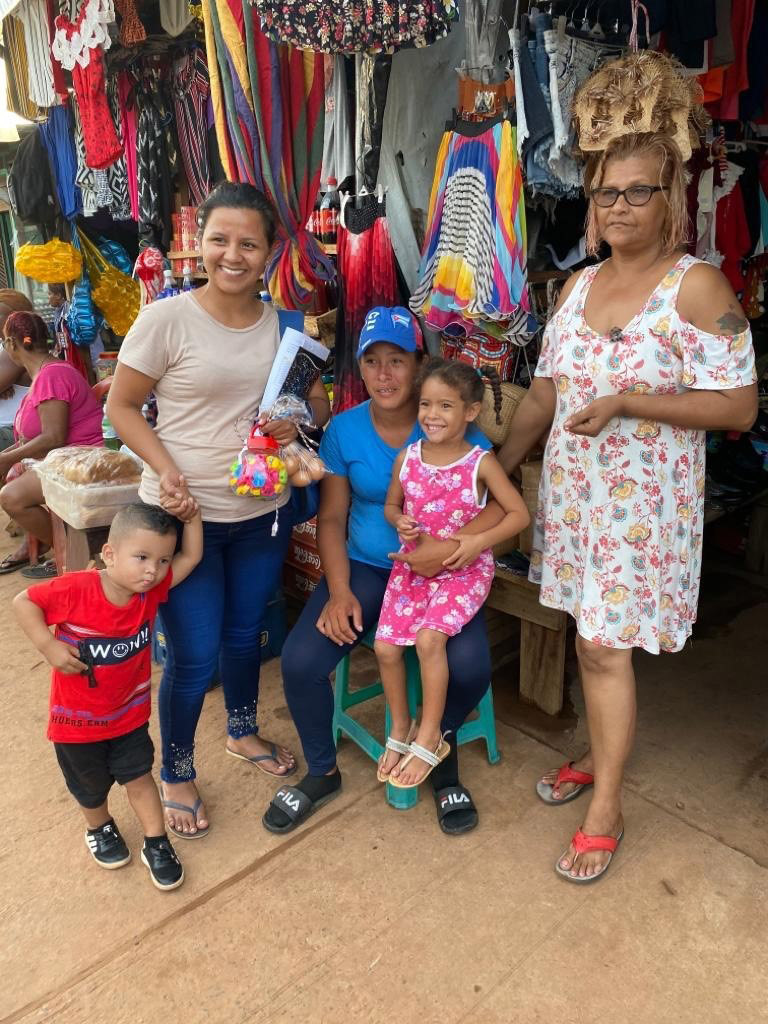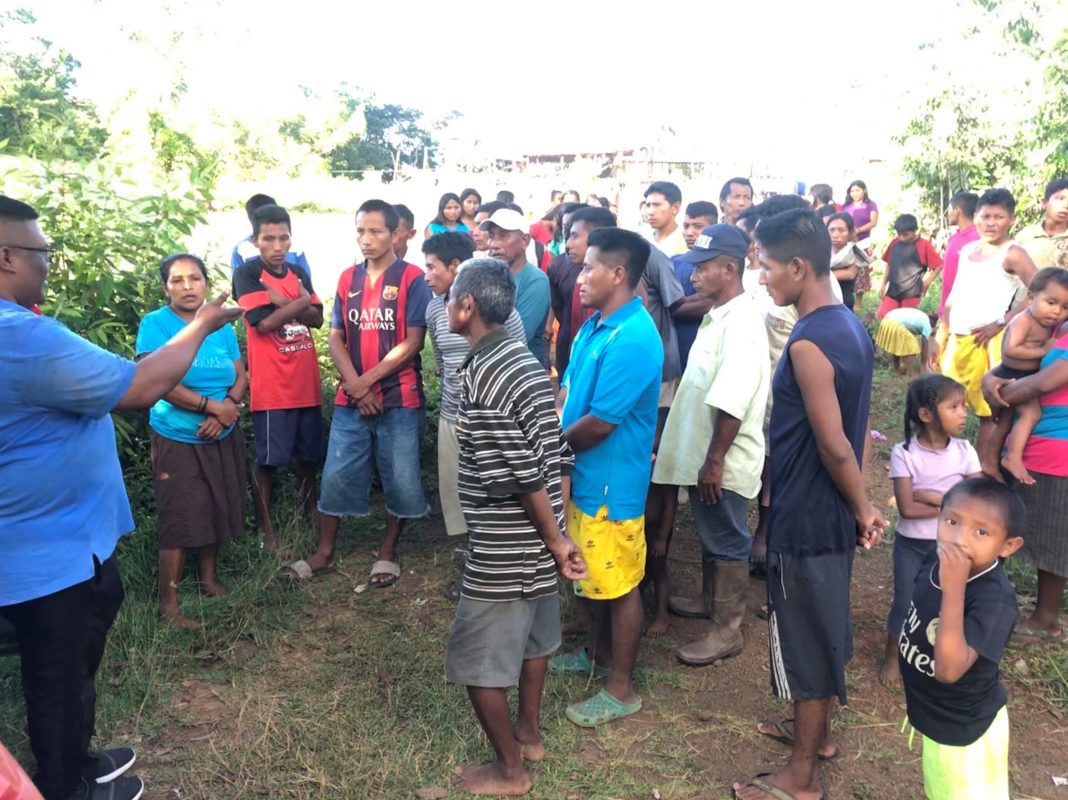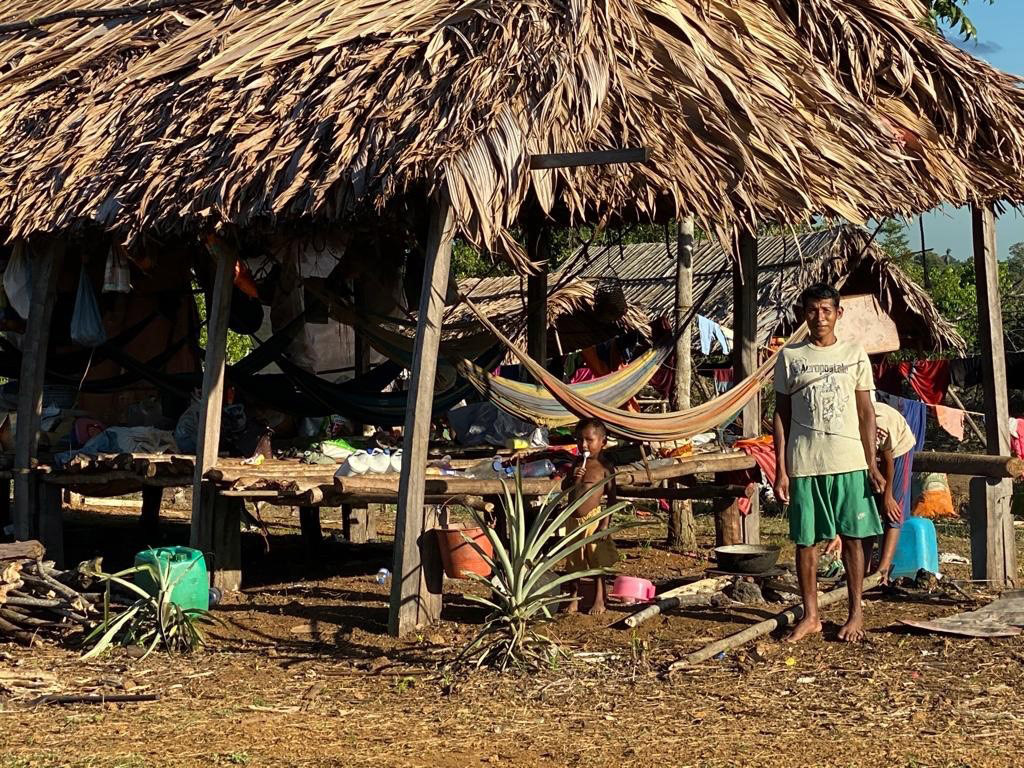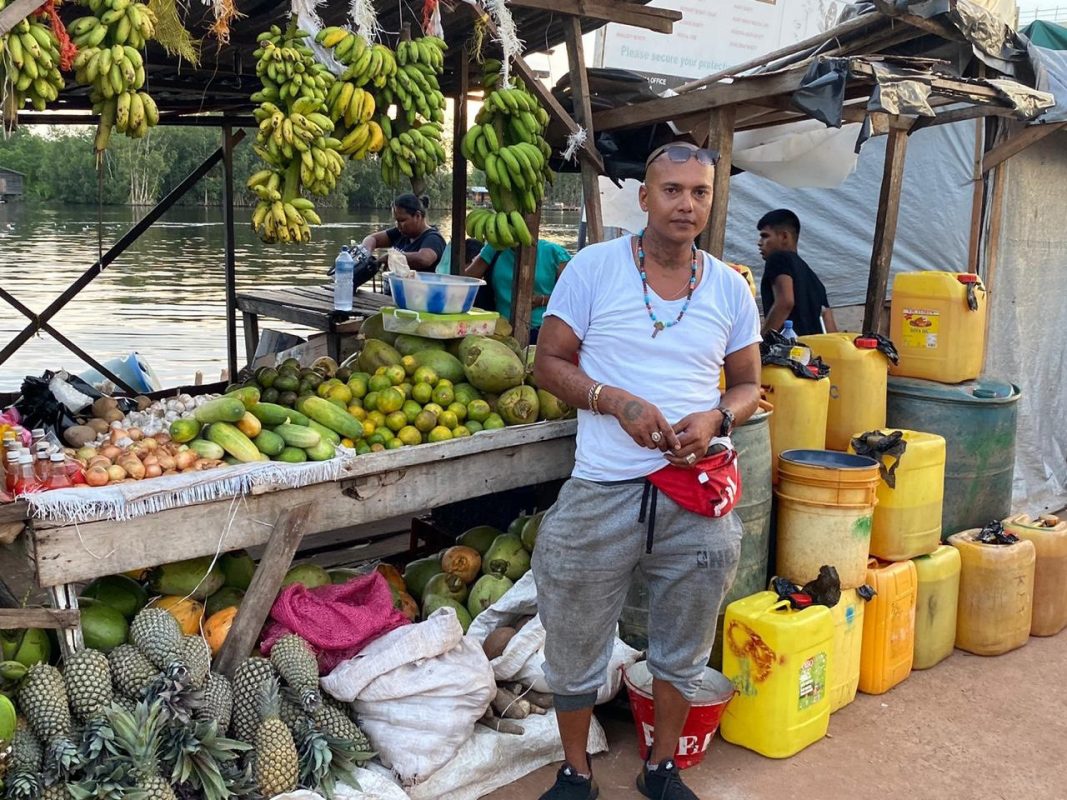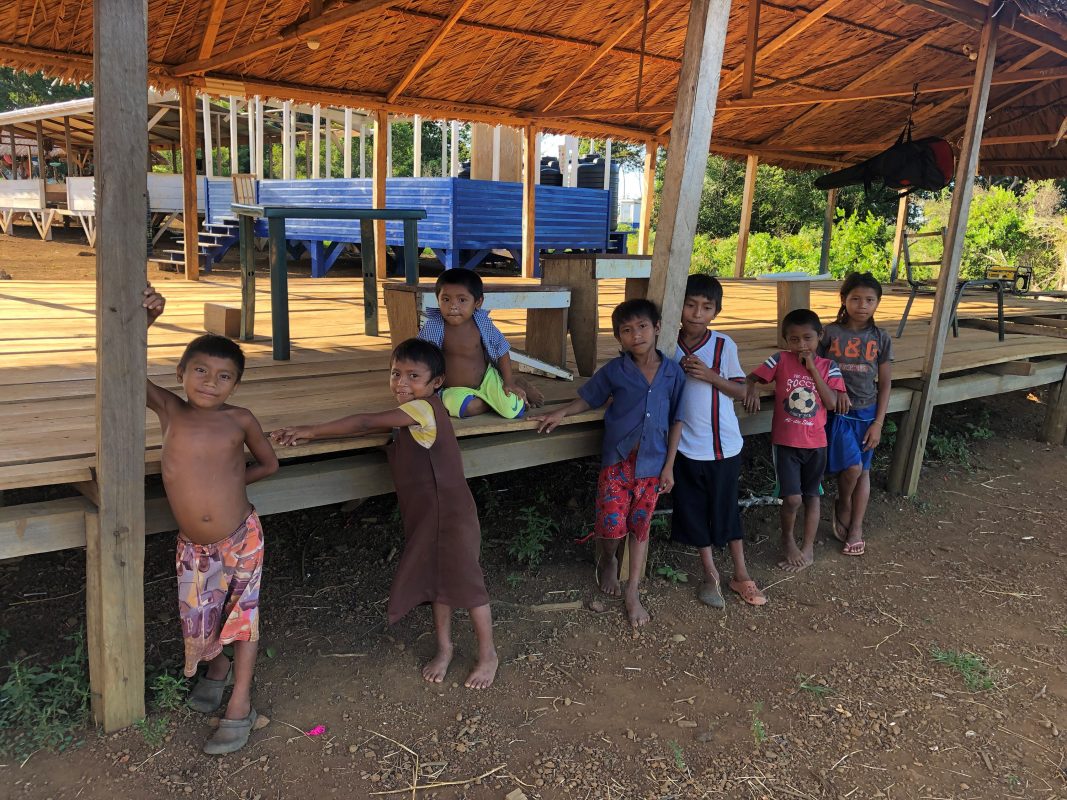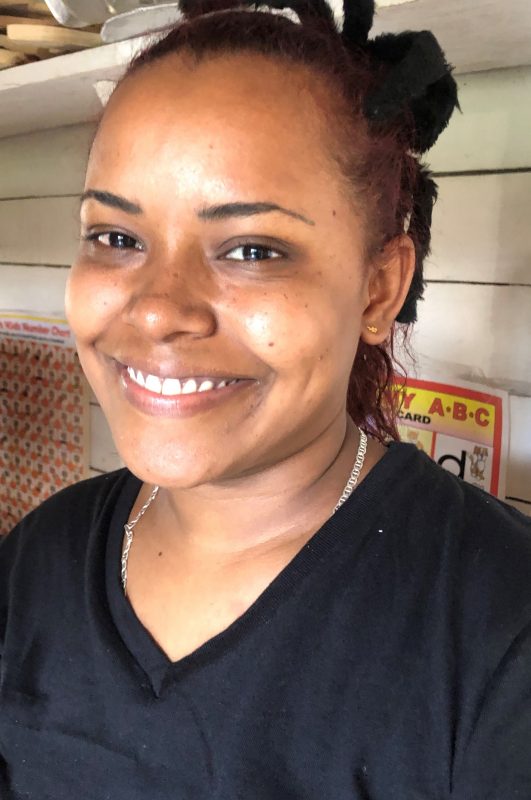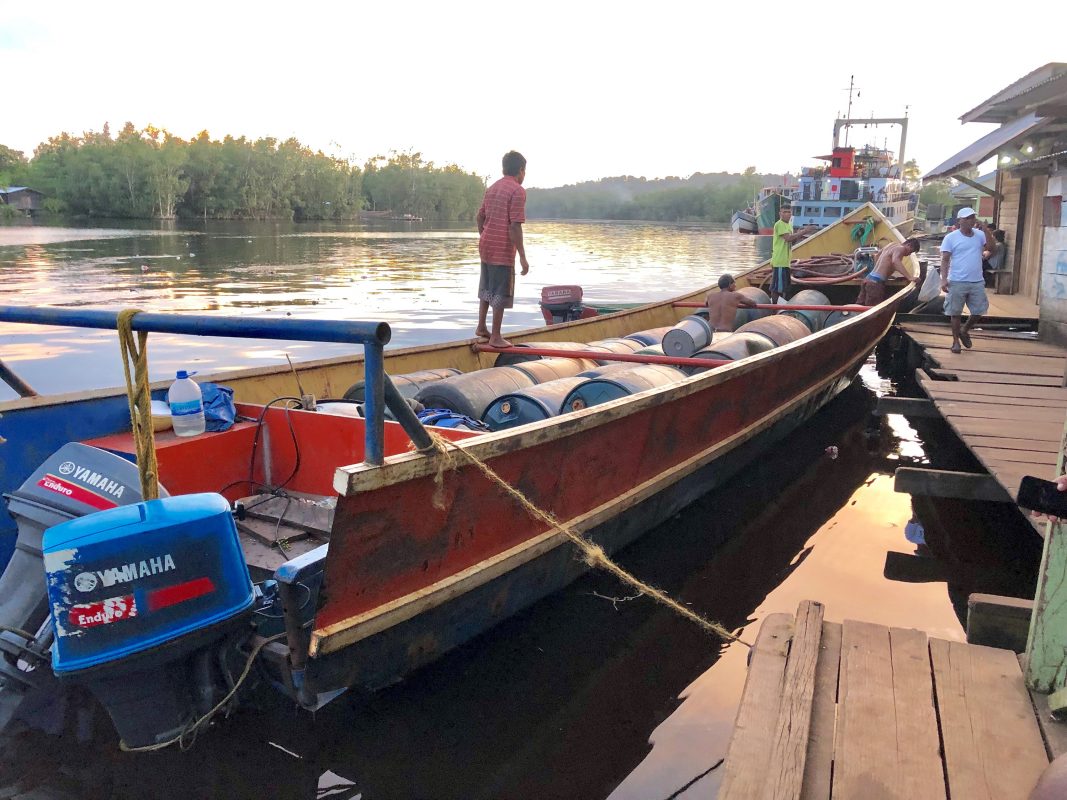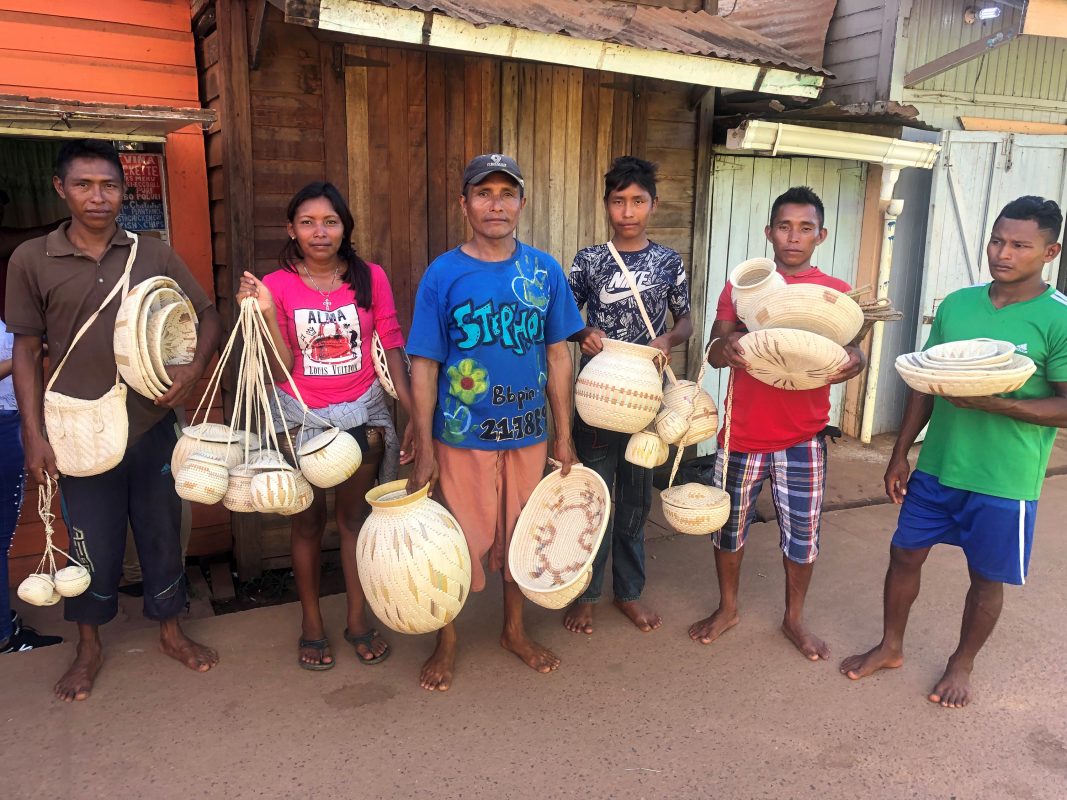The Mabaruma district in Region One has opened its doors to a large number of Venezuelans who have sought refuge in the area following the devastation of their country under the Nicholas Maduro administration.
Some have taken up residence on the Kumaka wharf, where they sleep in hammocks that are strung across the stalls.
But on market days, Tuesdays and Saturdays they would vacate so vendors can ply their trade.
So many Venezuelans have occupied that section that it is being referred to as ‘Spanish Town.”
Hundreds of the immigrants are also from the indigenous Warrau tribe. They speak their own language. They have been given permission to stay at Khan’s Hill, Yarakita, Kamwatta and Whitewater.
They have built several camps there using small tree trunks for the floors and palm leaves for the roofs.
They also sleep in hammocks in the camps while their belongings are scattered on the floor. They also constructed a huge tent where they go for church services.
Alicia Gomez, a Vene-zuelan who serves as a volunteer with the Migrant Support Network (MSN) and an interpreter, ensures that all of the immigrants receive the necessary documentation.
When they arrive in Guyana she takes them to the immigration office and then to the Mabaruma Hospital for health screenings and vaccines.
She also represents them “if they have any problems with the police regarding their stay in the country.”
Once they are documented they are entitled to an education, in the case of children, access to health care at the hospital and to seek employment.
The immigrants at the Kumaka wharf would find work with store owners or do odd jobs just to get money for food.
Many of them would also save money to buy food items to send for their families back in Vene-zuela.
Others would use the money they earn to move on to Georgetown with the hope of finding better jobs and living conditions.
They would go via the MV Kimbia ferry service that plies the Kumaka to Georgetown route. The trip takes about 20 hours and costs $3,000.
Sandra De Nobrega, a store owner at the wharf currently employs four Venezuelans, “just to help them out. Three of her workers are there a few months now and do not speak English.
She said many others on the wharf are unemployed and when they need “money for food, they would come and ask me if I want them to sweep the front of my shop.”
The woman said too: “It’s a very sad situation… The children would come here sometimes and I would buy several loaves of bread and a few sodas to give them and they would be fighting for it.”
Talents
The Warraus use their talents to create hammocks, jewellery boxes, fruit trays, handbags and other craft items using straw materials.
They take them to the Kumaka wharf area and would get support mostly from visitors.
They also do farming and odd jobs to earn an income.
The Civil Defence Com-mission (CDC) and businesspeople provide them with food items and clothing.
They have also benefited from water tanks with drinking water, washroom facilities and a training centre from the Guyana Water Inc.
The water company has also constructed small learning centres for the children. Gomez said the children are part of a programme to learn English as a second language and that once they know the basics they will be enrolled in the schools.
At the time of this newspaper’s visit, Regional chairman, Brentnol Ashley had stopped in and was listening to some of their concerns.
They complained through a local Warrau interpreter that some people in the region were telling them that they may have to leave.
The chairman told them that he had already allowed them to stay there and that the “Government of Guyana fully supports humanitarian assistance to those of who are faced with troubles in Venezuela. That is why they have allowed you to come here… you have a right to be here because you are human beings.”
He told them that it is important they continue to keep the place clean and to look after their families.
The Lands and Surveys was preparing a plot of land for them to do farming.
Hardship
Gomez said the situation in Venezuela has gotten worse and people are
continuing to face hardship.
And even though the conditions at Mabaruma are not of the best, “at least they would have food, a place to rest and can access health care.”
She said food is available in Venezuela but it is “very expensive and many people cannot afford to buy.”
They would go to restaurants after people finish eating and search the plates and even the garbage for leftovers.
“There is no health care service available anymore; they don’t have medications. The education system is going critical.
Teachers and doctors are leaving the country,” Gomez said sadly.
Over four years ago when the country had just started facing hardships, many Guyanese or Venezuelans of Guyanese parentage began moving back to Mabaruma.
Mary Moonsammy, 28, was one of them.
Her parents are from Mabaruma and they had moved to Venezuela in search of a better life, which they found.
But their lives took a downturn when the country fell into crisis.
Her mother has since died and her father works as a security guard.
She is employed at a shop at the Kumaka wharf. There are other Venezuelan girls working there as well and Moonsammy acts as interpreters for them.
Some Venezuelans would bring gasoline to Guyana to sell and would use the money to buy food to take back home.
But now, not every day a boat would come from Venezuela because the government “there locks off the border.” Now they are coming about two times per week
The boats would also bring other Venezuelan who are looking for work.
Along the wharf, Derrick Persaud, a vendor, displays containers of fuel he purchased from boats belonging to Venezuelans.
He also sells fruits and vegetables.
Some of the boats take the fuel to the wharf at Kumaka. Others go by the Guyana Revenue Authority (GRA) office at Morawahanna, where Derrick goes to make his purchases.
He pays the GRA a fee of $5000 for the fuel. He currently purchases a barrel of oil for $60,000, a steep increase from the $25,000 he used to pay.
He said the price has increased since the Venezuelan authorities started closing the border.
“They claimed that we are paying too cheap for the fuel… So they close it so they can get a higher price,” he said.
He sells the “raw fuel” for $1200 while the mixed fuel is sold for $1300.
He told this newspaper: “This is hard for the small farmers. They have to spend a lot on fuel to bring out their produce and they don’t make much profit.”
Meanwhile, the Venezuelans and even the Guyanese who were living there, have one dream. And that is for the country to rise again so they can go back and have a normal life.
